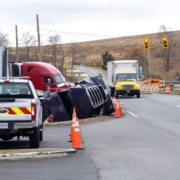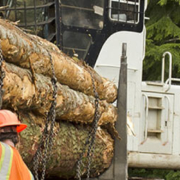Are Trucking Accidents More Common in Rural or Urban Areas?
Large trucks play an important role in the American economy, providing consumers with the goods they need and bringing raw goods to manufacturers across the country. Truck drivers meet stringent standards before they begin driving commercially, and for that reason, most truck drivers are known for being safe drivers that are rarely involved in crashes.
However, when truck accidents do happen, the results can be devastating. Truck collisions often leave entire highways shut down for hours on end, cause serious injuries, and rack up hundreds of thousands of dollars in property damage.
Learn more about where truck accidents are more likely to occur, and if you have been involved in a truck accident, get the legal help you need. Call Bailey Javins & Carter at 800-497-0234.
Current Truck Accident Trends
The Federal Motor Carrier Safety Administration is one of the most reliable sources for vehicle accident data. They maintain ongoing data on truck collisions, providing valuable insight into how, where, and when these accidents occur. In 2020, there were 4,444 fatal crashes involving large trucks, resulting in 4,965 fatalities. During that same year, there were 101,000 crashes that caused physical injury and 310,000 that only caused property damage.
Which Setting is More Dangerous?
The majority of data focuses on fatal truck accidents. Across the board, the majority of fatal truck accidents took place on rural roads. Roughly 54% occurred in rural areas and 27% took place on interstate highways. This indicates that rural roads are far more likely to see serious or fatal truck accidents.
Why Rural Accidents Are More Common
This raises an important question: why do these collisions happen more often on rural roads? Some experts have speculated that there are a few reasons contributing to this trend. To start, rural roads are much less busy than urban roads. This may allow drivers to relax more and perhaps be less alert while driving, as other vehicles are rare.
Should an obstacle or another vehicle appear, a driver may be less capable of responding quickly and avoiding a crash. Additionally, quiet roads lend themselves to fatigue. A driver stuck on a long, dark country road is far more likely to become fatigued and start to drift off. Not only does this make an accident more likely, but it also means that any accident is more likely to be severe.
Additionally, speeding is a huge problem in rural areas. These areas are less likely to be patrolled by police, which makes it easier for drivers to exceed the speed limit without fear of being caught. Drivers are also less worried about causing crashes in rural areas since they’re unlikely to encounter other drivers.
When you combine these factors, it’s clear that rural regions have the ideal circumstances for single-vehicle and multi-vehicle crashes.
Keeping Yourself Safe
Although truck crashes are more likely in rural areas, you should be extremely cautious any time you drive near a tractor-trailer—not just when you’re in the country. These tips can help you decrease your risk of a truck collision:
- Stay out of blind spots. Trucks have enormous blind spots on all four sides, so driving too closely on any side is not wise. If you get stuck behind a truck, slow down and drop back so you stay visible. If you must pass a truck, do so quickly and do not stay next to it for too long.
- Leave plenty of space. Trucks need much more time to come to a complete stop than passenger vehicles. If you must be close to a truck, leave more space than you think you need. The truck driver will appreciate it.
- Drop your speed. You want to be safe and predictable when driving around trucks. Limit your speed and only increase your speed if you are passing.
Start Your Personal Injury Claim with Bailey Javins & Carter
If you’ve been hurt in a truck accident, don’t wait any longer to find out if you are entitled to compensation. The team at Bailey Javins & Carter is here to help you. Call us at 800-497-0234 or reach out online to set up a consultation right away. We’re here to fight for the compensation you deserve.






 Insurance Adjusters misrepresenting your account of an accident
Insurance Adjusters misrepresenting your account of an accident




